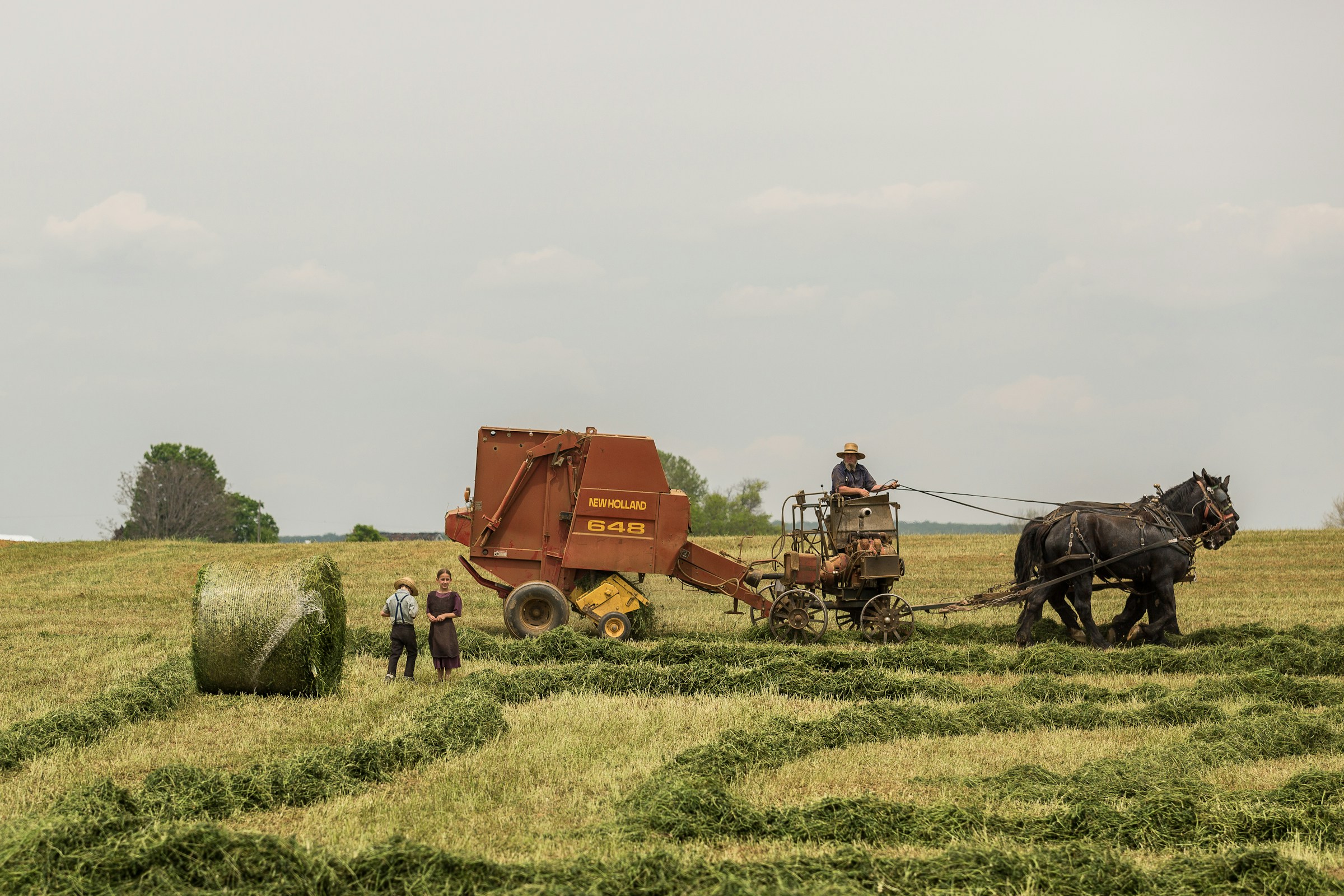Where in the UK can you attend a workshop on sustainable farming practices?

In the dynamic world of agriculture, farmers are continually seeking innovative methods to increase their crop yields while simultaneously reducing their carbon footprint and promoting soil health. One path that has gained considerable attention over time is the concept of sustainable farming. Pivotal to the success of these practices is the transition from traditional systems to more regenerative ones. These innovative approaches to farming not only produce nutritious food but also act as a safeguard against climate change.
Nevertheless, adopting this system requires knowledge and training. Fortunately, there is a wealth of workshops across the UK offering the necessary support. These workshops are designed to equip farmers with the skills and understanding to implement sustainable farming practices on their farms. Let's delve into some of the places where you can get this critical agricultural education.
A lire aussi : Unlock the secrets to effortless travel experiences
The Soil Association
The Soil Association, a UK charity, is passionate about transforming the way we farm and eat. They believe in a world where food is produced in a way that protects our natural world and allows every farm animal to feel the sun on their backs. This organisation runs a variety of workshops on sustainable farming practices. Their courses, ranging from introductory sessions to in-depth training, cover a comprehensive list of topics including organic farming, soil health, reducing carbon emissions in agriculture, and more.
Their workshops are not limited to just farmers. They believe in equipping everyone, from the local community to food businesses, with knowledge about the food they eat. The Soil Association's commitment to sustainable farming is a testament to their unwavering belief that the health of people, animals, and the planet are interconnected.
En parallèle : Which medieval-themed festivals in the UK offer the most authentic experiences?
The Permaculture Association
The Permaculture Association is another excellent resource for anyone interested in attending a workshop on sustainable farming practices. The association, based in the UK, supports individuals and groups in creating sustainable systems by designing solutions inspired by nature. The idea is to focus on the connections between plants, animals, buildings, people, and the landscapes that surround them.
Their workshops cover a range of topics from design for real farming systems to regenerative agriculture. The association's projects have a strong emphasis on not only producing food but also enhancing ecosystem services, sequestering carbon, and improving the health and wellness of communities. This holistic approach ensures that the principles of sustainable farming are deeply rooted in every aspect of their work.
The Centre for Alternative Technology
Located in the picturesque setting of the Snowdonia National Park in Wales, the Centre for Alternative Technology (CAT) offers unique insights into sustainable living. Its primary focus is on researching and teaching practical solutions for sustainability. The CAT offers a range of courses related to renewable energy, sustainable building, organic growing, woodland management, and more.
The workshops at CAT provide a practical and hands-on approach, ideal for those who learn best by doing. Learning at CAT is not just an academic exercise; it's about experiencing sustainable living first-hand. This immersive experience makes CAT an exceptional place for anyone who wants to learn about sustainable farming practices.
Organic Growers Alliance
The Organic Growers Alliance (OGA) is a network of growers dedicated to advancing the cause of organic horticulture and agriculture. It organises regular events, including workshops, farm walks, and discussion groups, to share knowledge and experiences among its members.
The workshops at OGA cover various topics related to sustainable farming practices – from soil health and composting to crop rotation and pest control. The OGA's commitment to creating a supportive network for organic growers makes it a valuable resource for those keen to implement sustainable practices in their farming projects.
The Farm School Initiative
The Farm School Initiative is a UK-wide project aimed at inspiring and educating children and adults about food, farming, and the countryside. The initiative's workshops are designed to provide hands-on experiences and meaningful connections with the natural world.
These workshops cover an array of topics such as understanding where our food comes from, the importance of local farming, and the role of sustainable agriculture in mitigating climate change. The emphasis on education and community involvement, coupled with the promotion of sustainable farming practices, makes the Farm School Initiative an excellent avenue for those keen on learning more about this form of agriculture.
Remember, knowledge is power. As you engage with the resources available across the UK, you will be equipped to make informed decisions about your farming practices. You will have the tools to contribute positively to your local community, the wider environment, and, of course, your farm's productivity.
The Allerton Project
The Allerton Project, located in Leicestershire, has been at the forefront of research into farming and the environment for over 20 years. Operated by the Game and Wildlife Conservation Trust, this project is primarily a research farm working on various aspects of sustainable farming practices. Their work spans a range of topics including soil health, food systems, climate change, regenerative farming, soil carbon, local food, greenhouse gas emissions, and more.
The project offers workshops that provide practical advice and demonstrations on implementing sustainable farming methods. They are founded on scientifically-backed solutions, giving attendees the assurance that they are learning tried and tested practices. The Allerton Project is particularly noteworthy for its focus on farm-scale research, making it an ideal resource for farmers interested in implementing sustainable methods on a larger scale.
The project has a farm that operates as both a commercial enterprise and a demonstration of their research. It provides firsthand experiences of the challenges and benefits of adopting sustainable farming practices. This hands-on approach is a valuable learning tool, offering attendees a tangible understanding of the realities of sustainable farming.
The Organic Research Centre
The Organic Research Centre (ORC) is an independent research organisation dedicated to the development of sustainable food systems based on organic and agroecological principles. The ORC conducts research, disseminates knowledge, and works with farmers and growers to develop innovative, sustainable solutions to food production challenges.
Their workshops cover a broad spectrum of topics such as regenerative agriculture, soil health, land management, low carbon farming, food system transformation, and more. The ORC's workshops are driven by a strong scientific foundation, providing attendees with credible and up-to-date knowledge on sustainable farming practices.
This centre is renowned for its robust research on organic farming. The insights derived from their studies are invaluable for those seeking a deeper understanding of sustainable farming practices that are rooted in scientific evidence. Their commitment to an organic, agroecology-based food system ensures that their workshops provide a holistic view of sustainable farming.
Conclusion
Investing in sustainable farming practices is crucial in today's world. It helps to combat climate change, promotes soil health, enhances food security, and ensures the viability of our farming communities. Workshops such as those offered by the Soil Association, the Permaculture Association, the Centre for Alternative Technology, the Organic Growers Alliance, the Farm School Initiative, the Allerton Project, and the Organic Research Centre provide a wealth of knowledge and practical advice on implementing sustainable farming practices.
Moreover, attending these workshops is not only beneficial for farmers but also for anyone interested in the food we consume and the impact of its production on our environment. They provide essential insights into food systems, regenerative agriculture, land management, soil carbon, local food, and much more.
The journey towards a more sustainable farming sector can be challenging. However, armed with the right knowledge and tools, we can all make a difference. As farmers and consumers alike, we have the power to drive change in our food system towards one that is more sustainable, resilient, and beneficial for both people and the planet. So whether you're a full-time farmer or an engaged citizen, seize the opportunity these workshops offer, and let's build a sustainable future together. Remember, every small step towards sustainability counts, and together, we can make a big difference.
